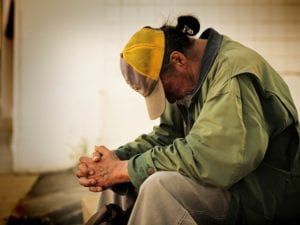
Raising kids is not for the faint of heart. It requires an enormous amount of energy, patience, compassion, humility and stickability. And even if you have all that in spades (which most people don’t) you’ll still need help. Someone to watch the kids when you go to work. Someone to help out when you’re sick and need a nap. Someone to step in when you’re feeling overwhelmed and don’t think you can go on.
Most parents can’t do it alone. Which doesn’t make you weak, or ineffectual, or a bad parent. It simply makes you human. Needing help is perfectly normal, and nothing to be ashamed of. However, not everyone has a support system in place. Which makes parenting that much harder. And yet, instead of offering support and services, CPS punishes parents who don’t have the support they need. Especially if they’re poor.
Parents battling poverty need MORE help, not less!
In an article published in Youth Today, written by Richard Wexler, the problem is clearly explained. As Wexler puts it: “Child welfare’s obsession with the idea that, in order to be allowed to raise their own children, parents must prove they can do so independently.” He even provides two examples of recent cases where single parents facing economic disadvantage were profiled by CPS as “bad” or “ineffective” parents simply because they lacked the help they needed, but not because they had any history of doing anything wrong.
“Who in the world raises a child independently?” Wexler asks. “Certainly not middle-class families. They have child care if they want it when the children are very young, and after-school care when they’re older. They have babysitters when they just need a break. Often they have housekeepers. If they have mental health problems they can go to their discreet family doctor who can refer them to a nice private therapist — and no one is going to call child protective services.”
Why are poor parents targeted by CPS, but not rich parents?
As Wexler explains, foster families get loads of help to take care of those very same children whose parents desperately needed the help – and didn’t get it. Foster families get hours of training every year, financial support, and access to counseling services and mental health care. Poor families, and families struggling with economic hardships, get nothing.
Wouldn’t it make more sense to leave the children with the parents who loved them, and then use the resources available to CPS to support those struggling parents? Instead of traumatizing those children by taking them away from everything familiar they’ve ever known, putting them with strangers, and then expecting them to thrive.
The current welfare system is stacked against poor parents!
No parent is perfect. No parent has all the answers, or knows what to do in every situation. But that doesn’t mean they should be penalized or persecuted. And unfortunately, CPS has a long history of penalizing and persecuting parents who face financial challenges in life. In fact, CPS makes it a point to treat struggling parents poorly, whether their challenges are financial, or are the result of mental and physical health issues.
At The Kronzek Firm, our skilled CPS defense attorneys have spent decades helping parents protect their children and keep their families together. We know exactly how CPS works, and how to defend against their bullying tactics and destructive anti-family practices. So if you or a loved one are at risk of losing your children to CPS, call us at 866 766 5245 today, and get the help you need to fight back!

